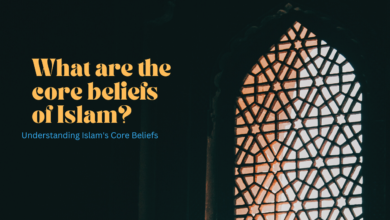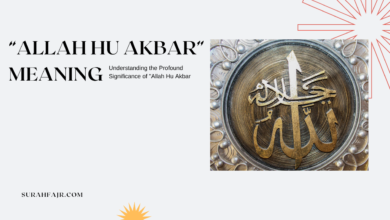
Prophet Adam

Introduction:
Prophet Adam holds a significant place in the Abrahamic religions—Islam, Christianity, and Judaism. Considered the first human being, his story is rich with moral and spiritual lessons. This article delves into the narrative of Prophet Adam, exploring his creation, life in paradise, and the lessons derived from his experiences.
Creation of Adam:
According to Islamic tradition, Prophet Adam was created by Allah from clay. The Quran describes this unique creation in Surah Sad (38:71-72): “When your Lord said to the angels, ‘I am creating a human being from clay, from molded mud.'”
In the Judeo-Christian tradition, the Book of Genesis narrates a similar account of Adam’s creation. God formed Adam from the dust of the ground and breathed life into him, making him a living soul (Genesis 2:7).
Also Check
Life in Paradise:
Adam and his wife, Hawwa (Eve), were placed in paradise, referred to as Jannah in Islam. This heavenly abode was a place of eternal bliss, where Adam and Hawwa lived in harmony and peace. The Quran (Surah Al-Baqarah 2:35) describes the paradise saying, “We said, ‘Adam, live with your wife in paradise and eat freely from it wherever you see fit, but do not approach this tree, or you will both become wrongdoers.'”
The Forbidden Tree:
The narrative takes a turn when Satan deceives Adam and Hawwa, leading them to eat from the forbidden tree. The Quran (Surah Al-A’raf 7:20-22) recounts Satan’s temptation: “Satan whispered to them to reveal to them their private parts that had been invisible to them. He said, ‘Your Lord has only forbidden you this tree to prevent you from becoming angels or immortals.'”
Disobeying Allah’s command, Adam and Hawwa tasted the forbidden fruit, realizing their nakedness. Recognizing their mistake, they repented and sought forgiveness from Allah.
Divine Forgiveness and Lessons:
Adam’s story is one of repentance, forgiveness, and redemption. Allah forgave Adam, emphasizing the importance of sincere repentance. The Quran (Surah Al-A’raf 7:23) mentions Adam’s repentance: “Our Lord, we have wronged ourselves, and if You do not forgive us and have mercy upon us, we will surely be among the losers.”
The story of Prophet Adam offers profound lessons, emphasizing the consequences of disobedience, the importance of repentance, and the boundless mercy of Allah. It also underscores the vulnerability of human beings to temptation and the need for steadfastness in faith.
Conclusion:
Prophet Adam’s story serves as a foundational narrative in the Abrahamic religions, imparting essential moral and spiritual lessons. His creation from clay, life in paradise, and the subsequent events in his life carry timeless messages of obedience, repentance, and divine mercy. As believers reflect on the story of Prophet Adam, they find guidance on navigating the challenges of life with faith, humility, and a commitment to seeking forgiveness from the Creator.

Frequently Asked Questions About Prophet Adam:
Who is Prophet Adam?
Prophet Adam, in Islamic, Christian, and Jewish traditions, is considered the first human being created by God. His story is foundational in Abrahamic religions.
How was Prophet Adam created?
According to Islamic tradition, Allah created Adam from clay. The Quran mentions the process in Surah Sad (38:71-72). In the Judeo-Christian tradition, Adam is formed from the dust of the ground (Genesis 2:7).
What is the significance of Prophet Adam’s creation from clay?
The creation from clay symbolizes the unique origin of humanity and emphasizes the creative power of God. It underscores the importance of humility, as humans are formed from the simplest of materials.
Where did Prophet Adam and Hawwa (Eve) live?
Adam and Hawwa lived in paradise, a blissful place mentioned in the Quran as Jannah. It was a place of eternal happiness, peace, and harmony.
What was the forbidden tree, and why were Adam and Hawwa forbidden to approach it?
The forbidden tree, mentioned in the Quran (Surah Al-Baqarah 2:35), was a test of obedience. Allah prohibited Adam and Hawwa from approaching it, and disobedience led to their expulsion from paradise.
How did Satan deceive Prophet Adam and Hawwa?
Satan deceived them by whispering and promising them immortality if they ate from the forbidden tree. The Quran highlights Satan’s role in their temptation (Surah Al-A’raf 7:20-22).
What happened after Adam and Hawwa ate from the forbidden tree?
After eating the forbidden fruit, Adam and Hawwa realized their nakedness and sought forgiveness from Allah. Their repentance and Allah’s mercy are crucial aspects of the story.






